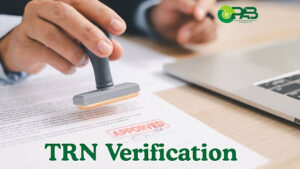Starting a business in the UAE is one of the smartest moves you can make if you want to grow in a thriving, tax-friendly market.
UAE offers endless opportunities for entrepreneurs, from small startups to large corporations, thanks to its strategic location, business-friendly policies, and diverse industries.
So do not just dream about it. Read on, take action, and start building your business future in the UAE today.
Read on to discover everything about how to start a business in UAE. We will cover the steps, costs, legal requirements, and insider tips to help you launch successfully.
Why Start a Business in the UAE? (Key Benefits for Entrepreneurs)
UAE has become one of the world’s top destinations for entrepreneurs because of its stable economy, modern infrastructure, and low-tax environment. Whether you want to serve local customers or expand globally, the UAE offers strong advantages.
Here’s why it is worth considering:
- No personal income tax and competitive corporate tax rates.
- World-class infrastructure for logistics, transport, and communication.
- Thriving sectors such as technology, tourism, e-commerce, and renewable energy.
UAE Business Ownership Options Explained
Before starting your business, you need to understand the main ownership structures available. Choosing the right one will affect your tax benefits, operational flexibility, and market reach.
The three main options are:
- Mainland company – Can operate anywhere in the UAE and work with both local and international clients.
- Free zone company – Allows 100% foreign ownership and offers tax exemptions but generally limits you to operating mainly within the free zone and internationally.
- Offshore company – Mainly for holding assets, international trading, and protecting investments.
Step-by-Step Guide to Start a Business in UAE
Starting a business in the UAE is straightforward when you follow the right steps. Below is a clear, step-by-step guide to help you go from idea to operation.
Step 1 — Choose Your Business Activity
Decide exactly what products or services you want to offer. Your chosen activity must match the UAE’s official list of permitted business activities, which varies by jurisdiction.
📚 Explore the UAE’s fastest-growing industries to position yourself for long-term success. You can check out these profitable business ideas here for inspiration.
Step 2 — Mainland vs Free Zone vs Offshore Company Setup
Each option offers different ownership rights, tax benefits, and operational restrictions.
- Choose mainland if you want full access to the UAE market.
- Choose free zone for tax-free benefits and 100% ownership.
- Choose offshore for asset holding and international trade.
Step 3 — Select the Right Business Structure
Your legal structure will determine ownership, liability, and licensing requirements. Common types include:
- Limited Liability Company (LLC)
- Sole Proprietorship
- Civil Company
- Branch Office
Step 4 — Reserve Your Trade Name in UAE
Select a unique and compliant business name. Avoid words that are offensive, religiously sensitive, or already registered.
The trade name should reflect your activity and be approved by the Department of Economic Development (DED) or relevant free zone authority.
Step 5 — Get Initial Approval from Authorities
This is an official go-ahead from UAE authorities to proceed with your setup. Without it, you cannot move forward with the licensing process.
Step 6 — Draft Your MOA and Other Legal Documents
Your Memorandum of Association (MOA) outlines your company’s purpose, ownership details, and operational framework. Depending on your jurisdiction, this document may need notarization.
Step 7 — Choose Your Office Space in UAE
The UAE requires a physical address for most businesses. You can rent a traditional office, coworking space, or opt for a flexi-desk arrangement in free zones to save costs.
Step 8 — Apply for a UAE Business License
Licenses vary depending on your activity:
- Commercial license for trading activities.
- Professional license for service-oriented businesses.
- Industrial license for manufacturing.
Step 9 — Open a UAE Corporate Bank Account
Opening a corporate bank account is essential for your business operations. You will need your license, company documents, and shareholder details.
Approval can take anywhere from a few days to a few weeks.
Step 10 — Apply for Your UAE Investor Visa and Start Operations
As a business owner, you can apply for an investor visa. You can also sponsor visas for employees and dependents.
Once approved, you are officially ready to start operations.
How Much Does it Cost to Start a Business in UAE?
The cost of starting a business in the UAE varies depending on your setup. Generally:
- Free zone: Around AED 15,000 to AED 30,000+ depending on location and services.
- Mainland: AED 20,000 to AED 40,000+ depending on license type and office space.
📚 If you are on a budget, discover ways to save money with a low-cost business setup guide.
Legal Requirements & Compliance for UAE Businesses
Running a business in the UAE requires compliance with local tax and regulatory laws. Failing to comply can lead to fines or license cancellation.
Key compliance steps include:
- VAT registration if your turnover meets the required threshold. Learn more in this FTA VAT registration guide.
- Corporate tax registration introduced in 2023. See how to register in this corporate tax setup guide.
- Economic Substance Regulations (ESR): If your business carries out certain activities such as intellectual property holding, finance, shipping, or headquarters operations, you must meet economic substance requirements and file annual ESR reports with the Ministry of Finance.
- Annual license renewal and proper record-keeping obligations.
For expert accounting and bookkeeping services in the UAE, consider Outsource Prime Accountants and Bookkeepers (OPAB).
We simplify VAT registration, corporate tax compliance, ESR filing, and bookkeeping so you can focus on growing your business.
Have questions or need support? Contact OPAB today and start your journey with confidence.
Common Mistakes to Avoid When Starting a Business in UAE
Avoiding these mistakes will save you time and money:
- Picking the wrong jurisdiction for your goals.
- Underestimating visa requirements for yourself or staff.
- Not budgeting for hidden costs such as insurance and renewals.
Best Practices for a Successful UAE Business Launch
Launching a business in the UAE is easier when you follow proven strategies:
- Network actively in your industry for partnerships and clients.
- Market your business using both online and offline channels.
- Stay compliant to avoid fines and disruptions.
Your UAE Business Journey Starts Now
The UAE offers one of the most supportive and profitable environments for new businesses. By following the right steps, from choosing your business activity to securing licenses and meeting compliance, you can set yourself up for success.
For expert accounting and bookkeeping services in the UAE, consider Outsource Prime Accountants and Bookkeepers (OPAB).
We provide clear, affordable accounting, tax, and compliance services for UAE entrepreneurs. OPAB handles VAT registration, corporate tax compliance, ESR filing, and bookkeeping.
So do not just dream about it. Start your journey now. Contact us today and turn your UAE business idea into reality.
FAQs About Starting a Business in UAE
How to start a small business in the UAE?
Choose your business activity, select your jurisdiction (mainland, free zone, or offshore), and register your trade name. Get the required licenses, open a corporate bank account, and apply for your visa. Once complete, you can start operations legally.
How much does it cost to start a business in the UAE?
Costs vary depending on the setup type, license, and location. A free zone business may start from AED 15,000, while mainland setups may cost AED 20,000 or more. Additional expenses include office rent, visa fees, and compliance costs.
What business is best to start in the UAE?
The most profitable businesses often align with high-demand sectors such as e-commerce, tourism, health and wellness, and technology. Your choice should match both market demand and your expertise. Researching trends will help you pick the right niche.
How to earn $1000 AED in UAE?
You can earn AED 1,000 by offering freelance services, selling products online, or starting a side hustle. Some people also earn extra income through delivery services, tutoring, or renting out properties. The best method depends on your skills and available resources.









